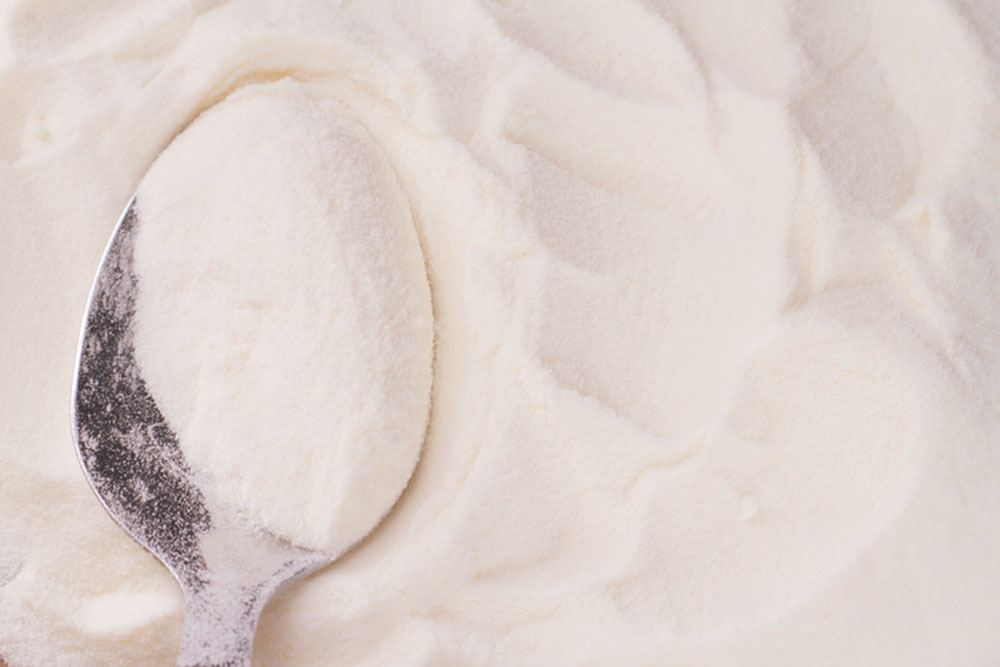
iStock
OUT WITH supplements containing vitamins and minerals; in with the ingestible nutraceuticals or “functional foods” maca, moringa and collagen—usually consumed as powders added to coffee or smoothies, or capsules.
Maca and moringa have been popular for years in the U.S. and centuries elsewhere —maca from the mountains of Peru; and moringa from East Asian countries like India and Pakistan. Made from plants known as “adaptogens”—meaning they help the body adapt to fatigue or stress —both may boost energy and, taken together, may amplify each other’s effects.
Moringa is dubbed the “tree of life” in Belize; maca is high in iron and iodine, and purports to heighten sex drive in men. For both powders, as with most supplements, official regulation of the quality and quantity of active ingredients is weak, and reliable research minimal.
More convincing is recent evidence for collagen powder, that it improves skin health —elasticity and hydration, as well as wound healing and protection against aging. While topical collagen formulations boast similar benefits, most have difficulty penetrating to the skin’s middle layer, the dermis, where real changes occur, says New York dermatologist Whitney Bowe.
“I believe it does hold promise,” reports Mark Moyad, complementary and alternative medicine director at the University of Michigan Medical Center, comparing collagen with other powdered supplements. “It’s also one of the most wacky and controversial.”
The body’s production of collagen, long amino acid chains that form the scaffolding and comprise 80% of skin, decreases with age—with about 1% lost every year starting in the mid-20s and as much as 30% during the first five years of menopause, according to Bowe.
Collagen peptides in powdered supplements are shorter chains of amino acids than those produced by the body and touted to improve absorption into the bloodstream. But “how much [collagen] is absorbed and whether those amino acids make it to their target organs—i.e. skin—is still up for debate,” notes New York-based dermatologist Shari Marchbein.
In a recent Journal of Drugs in Dermatology review of 11 studies, with a total of 805 patients that tested three collagen formulations, collagen hydrolysate worked well for skin aging, wound healing and other issues, while the others showed good results for increasing skin elasticity and hydration.
Collagen powders are made from ground-up animal, fowl and fish parts —those marketed as “plant-based” do not contain collagen. Hydrolyzed bovine collagen is the most “potent and effective,” according to Smarter Reviews, where the number-one rated product is Lifewell brand “Collagen Peptides.” Bovine collagen, however, comes with a potential if very small risk of mad cow disease. Also, the parts ground for collagen—which can include bones, skin, nerve tissues, hooves—can be sponges for contaminants and heavy metals, like cadmium and mercury, according to Georgia dermatologist Lauren Ploch.
A Consumerlab review found that products contained the quantity of collagen reported on the label but very high levels of cadmium.
Most experts, however, say that ingesting supplemental collagen can do no harm. For consumers, the biggest concern may be that collagen powders require daily use —forever—to maintain effects.
To determine dosage, dermatologists advise following directions on the bottle because individual products differ greatly. On Amazon, among dozens of products costing under $3/ounce, recommended daily dosages range from five to ten grams. “Readers’ comments” for some of these, however, include complaints of skin breaking out and headaches, as well as different side effects from the same product depending on where it was purchased.
A popular collagen formulation, Peptan, is the main ingredient in products made by Rousselot, including those labeled “fish” or “marine” collagen that contain only fish products but cost more than $5/ounce.
Whatever its other benefits, collagen is an “excellent source” of protein—“packing in more protein per calorie than other sources,” according to Moyad, author of “The Supplement Handbook: A Trusted Expert’s Guide to What Works and What’s Worthless for More than 100 Conditions.”
Compared to other supplements, the almost-universal reports of moister, plumper— less wrinkled—skin make it tempting even for usually supplement-resistant consumers.
Mary Carpenter
Every Tuesday, well-being editor Mary Carpenter delivers health news you can use.
